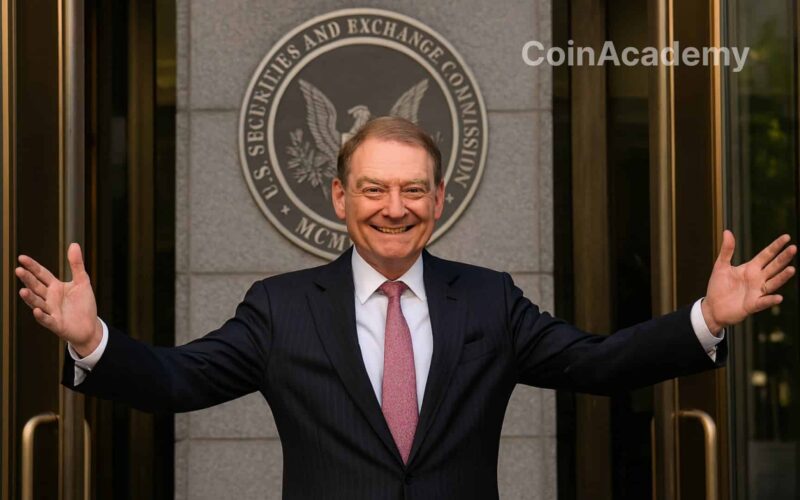Paul Atkins, the new head of the SEC, aims to establish an ‘innovation exemption’ by the end of 2025, allowing crypto companies to launch their products more quickly without heavy regulatory procedures.
Washington is speeding up: after the stablecoins law (Genius Act), Congress is preparing a comprehensive framework for crypto markets, with a vote expected before the New Year.
The SEC and the CFTC are working to harmonize their actions, and an exemption would ease the return of crypto projects to the US, enhancing competitiveness against Europe and Asia.
Embracing Crypto at the SEC
Appointed in April 2025, Atkins is sending strong signals in favor of the industry. By June, he had instructed his teams to study this exemption to accelerate the deployment of blockchain solutions. He then launched ‘Project Crypto,’ an initiative to modernize existing rules for the digital economy. This shift marks a clear turnaround for a regulator long perceived as hostile to digital assets.
A Hastening Political Schedule in Washington
This shift comes as the US Congress progresses on its own legislation. After the passage of a specific law on stablecoins (Genius Act), lawmakers are now working on a comprehensive framework for crypto markets. Two competing versions of the bill are circulating, but a merger seems expected by the end of 2025. Patrick Witt, the executive director of the White House Council of Advisors on Digital Assets, is confident about a vote before the New Year, further legitimizing the sector in the US.
SEC-CFTC Cooperation at the Heart of the Game
Asked about a potential merger between the SEC and the Commodity Futures Trading Commission (CFTC), Atkins focused on harmonization rather than fusion. ‘We work hand in hand with the CFTC,’ he stated. The two agencies will host a joint roundtable next week to consider the return of innovative products to the American market.
Impacts on the Crypto Market
If this exemption materializes, the US could once again become a focal point for crypto innovation after years of projects fleeing to Asia and Europe. This decision would provide a swift gateway for startups and financial giants looking to launch blockchain products in the US while awaiting the final legal framework. For investors, this could mean quicker access to new products, increased liquidity, and ultimately, better competitiveness against foreign markets.
The end of 2025 appears pivotal: with an anticipated vote in Congress and a transforming SEC, the American crypto market could finally enter an era of clear and embraced integration.




